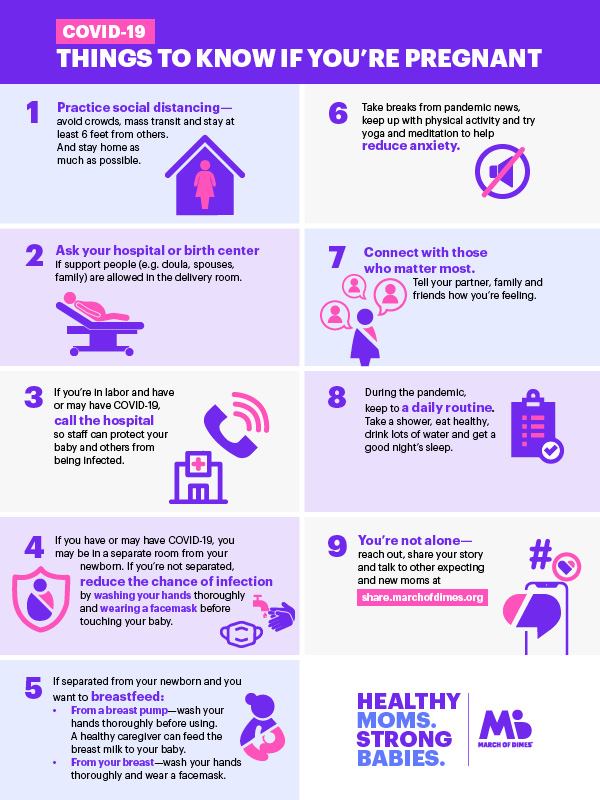A: The Nerdy Girls posted on this several weeks back, but recent research has provided us with some updates.
Here are a few key points based on available data:
-Pregnant women are no more likely to have high disease severity than than non-pregnant adults.
-We do not know if COVID-19 increases risk of adverse effects to the neonate. There is limited evidence linking COVID-19 to low birth weight, preterm birth, and low APGAR scores, but it is not yet clear if this is related to timing of infection (trimester) and/or disease severity.
-Most newborns born to mothers with COVID-19 are negative for COVID-19.
-It is not known if COVID-19 crosses the placenta; no conclusions can be drawn from the few studies on antibodies in infants because the specific antibody test results were prone to error.
-It is recommended that breast milk should be fed to infants if possible even if the mother has COVID-19.
Because we have limited data, current guidance for women with COVID-19 is based on the consensus of experts. They state:
-The person in labor should wear a mask and be in an airborne isolation room.
-There should not be an alteration in the delivery plan, but special consideration should be given to medications for pain relief, preterm birth, and sedation that can result in decreased respiratory drive (which could worsen COVID-19 symptoms).
-Mothers should be with newborns if medically stable and feasible; separation should be considered on a case by case basis.
-Mothers who breastfeed should wear a mask and perform good hand and breast hygiene (soap and water while singing happy birthday two times) before each feeding.
-Newborns should be tested for COVID-19 if the mother has confirmed or suspected COVID-19.
The upshot: We have not yet seen adverse outcomes for mothers and babies as we have seen for influenza; however we are still collecting data to better understand disease severity, transmission, and long term outcomes for the mother and infant.
The downside: Preventative measures are key for the mother to protect oneself from getting COVID-19 and to ensure that the infant does not acquire COVID-19.
For updated guidance on pregnancy, we turn to a few more trusted resources:
American College of Obstetricians and Gynecologists
All experts recommend continuing prenatal care in accordance with your provider’s clinical guidance. Birth in a facility (birth center or hospital) is still safer than a home birth during this time.
Finally, if you are considering pregnancy, make your choice based on the risks/benefits and what is right for you. If you have the option, you may consider delaying pregnancy. However, this is ultimately a personal decision.
We hope that this information helps guide you as you navigate pregnancy during the pandemic.
~Aparna


